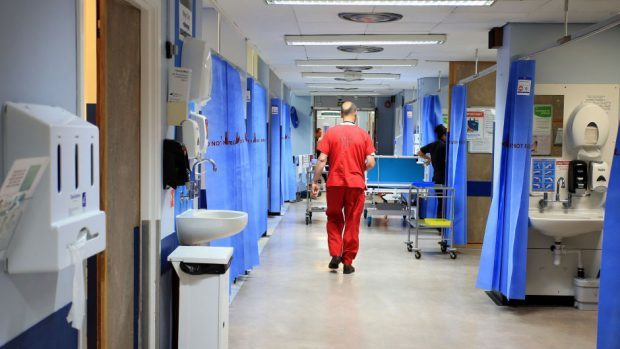The NHS in Scotland has carried out 14,000 fewer operations in Scotland this year – with the north-east health board accounting for nearly 4,000 of them.
NHS Grampian reduced the number of planned surgical procedures, such as hip and knee replacements, from 22,566 last year to 18,825 in 2017.
Boards in the north have not been as badly affected, with NHS Highland carrying out 72 fewer procedures, and NHS Orkney and NHS Western Isles 90 and 88 fewer than last year.
But NHS Shetland increased operations by 10.4% from 1,139 to 1,257.
The total across Scotland tumbled from 210,517 to 196,427- a fall of 6.7%.
NHS Grampian has long been plagued by problems recruiting staff due to a historically high price of living in the region among other factors.
Last night, Aberdeenshire West MSP Alexander Burnett, Conservative, said: “These new figure serve to further highlight an ongoing recruitment problem in the north-east that is nearing crisis point.
“Behind these statistics, there are real people, real families who have been forced to wait for months on end for operations.
“These delays can cause considerable difficulty and stress for those involved. I know that many of my constituents have found themselves in quite horrendous situations.
“The Scottish Conservatives have been saying for a long time now that more must be done to address workforce issues in the NHS – particularly here in Grampian. “
An NHS Grampian spokeswoman agreed that the decrease was “a direct result of the challenges we have faced in staffing”.
She added: “This does not just cover theatres themselves but also vital pre- and post-operative care. We continue to actively recruit to a range of posts but – in common with many Scottish boards – are facing a shortage of suitably qualified candidates in some areas.
“While we are unable to see all elective surgical patients within the 12 weeks timescale set out by the Scottish Government, our first priority is to ensure the most urgent patients get treated promptly.
“Therefore we have implemented an elective classification system to ensure those patients waiting longer are those clinically most able to do so.
“The classification is clinically led and covers all adult surgical services. We realise this will be disappointing news for those patients classed as able to wait longer.
“We remain committed to all Scottish Government waiting times standards. This is a pragmatic interim solution to maintain safety whilst current waits are longer than we would like.”
